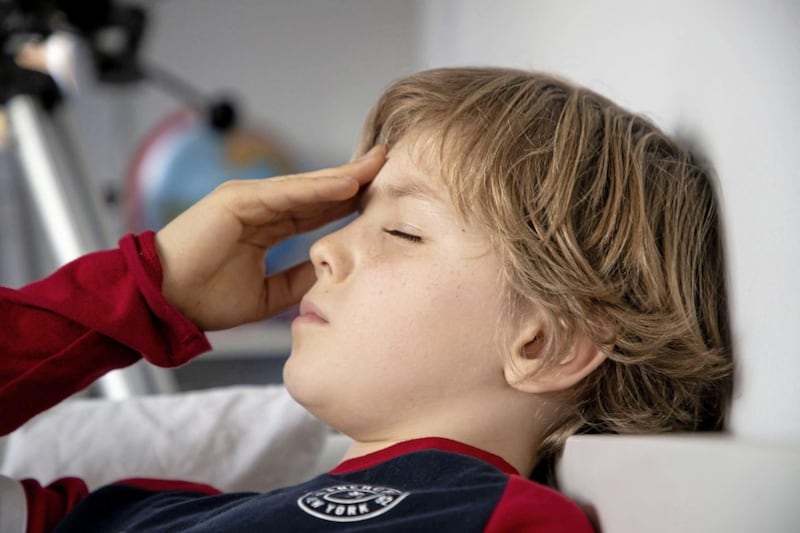Q: DO I still need to buy chemical-free bathing products for my children? As babies, I bought into the fully organic washes, but it's really expensive. Is it OK just to buy whatever's on offer in the supermarket? And when should children start cleansing? My daughter is 10-years-old and wants to start washing her face, but I have no idea if that's a good thing to start doing, or which brands I should opt for. Help!
A: Dr Emma Gardette, medical dermatologist at The Medical Chambers Kensington (themedicalchambers.com), who treats adults and children for all dermatological conditions – including acne, eczema and psoriasis – says: "As cleansing/bathing products are rinsed, they present few risks to health, so there are probably no big no-nos. Soap substitutes are preferable, as regular soap can be harsh to the skin. And avoid wipes, as they contain preservatives that can trigger skin allergies.
"Babies and young children have a thinner skin, which absorbs more chemicals than adult skin. Watch for potentially dangerous substances usually used as preservatives (parabens, formaldahyde releasers, isothiazolinones, phenoxyethanol)."
TRY: Good Bubble The Gruffalo Prickly Pear Bath Time Gift Set, £10, Boots (Boots.com)
Dr Gardette continues: "Similarly to shower gels, shampoos are rinse-off products, so any gentle shampoo will do. However, never use medicated shampoos in children without prior medical advice.
"During puberty, skin becomes greasier and thicker under the influence of hormones, explaining the onset of acne. Teens can change their skincare routine whenever they feel their skin is changing and the first comedones [skin-coloured, small bumps frequently found on the forehead and chin] appear.
"There is a wide range of good quality and affordable over-the-counter cleansers and creams for acne, and they are usually enough to manage mild conditions in teenagers.
"A morning and evening cleansing routine is recommended, especially in our modern way of life, when skin is exposed to pollution, allergens and dust. Micellar water or foaming gels can be used. For girls using make-up, double cleansing is helpful at night; first removing make-up with a cotton pad and a make-up remover or micellar water, then thorough facial cleansing with a water-soluble foaming product.
"Facial cleansers should be adapted to the skin type, to avoid any irritation."
TRY: Florence By Mills Clean Magic Face Wash, £12, Boots (Boots.com)
TOP TIPS
:: Use the 60-second rule
"If your skin is acne-prone, use a cleanser twice a day using the 60-second rule of leaving it on for 60 seconds," says Dr Paul Charlson, founder of the Into Skin Clinic in Canary Wharf. "I like Murad Clarifying Cleanser [£25, Murad.co.uk]. It has salicylic acid for cleaning and the antiseptic triclosan."
:: Avoid anything harsh
"For teens, avoid harsh scrubs, alcohol wipes and peel off masks," advises Dr Simon Zokaie, cosmetic dermatologist and the medical director of the LINIA Skin Clinic on Harley Street. "I know it's very tempting to use these when pimples start to appear, but the scrubs can damage the skin barrier. The alcohol wipes can dry the skin and it will overcompensate and produce more oil than usual, which can make acne worse.
"The peel-off masks don't really get rid of blackheads or pimples effectively – the remnants are still in the base of the pore, so it's better to use a good quality, soap-free cleanser to clear the pores, with a mild glycolic or salicylic acid."
:: Don't have long, hot baths
"Especially in winter, avoiding long, hot baths or showers, and swapping to soap-free products is a good idea," continues Zokaie. "The hot water and soap strip the natural oils from the skin. Bubble baths might be fun, but best to be kept to a minimum. Most kids won't need a moisturiser, but if they do, pick one without fragrance in it."
:: Ditch the glitter
"If you're environmentally conscious, avoid hair glitter unless it's biodegradable," says Zokaie.
:: Try zinc shampoo
For dry skin, Zokaie recommends sulphate or soap-free shampoos. "Zinc in shampoo can be good, as it helps repair the skin barrier," he adds. "It's especially good if you have dandruff."








